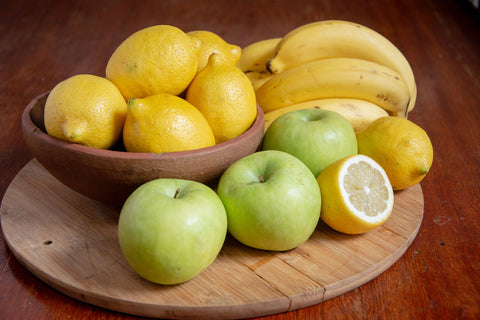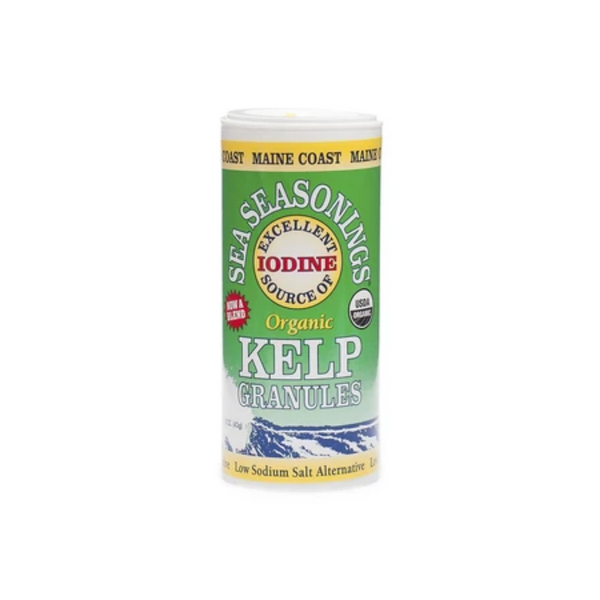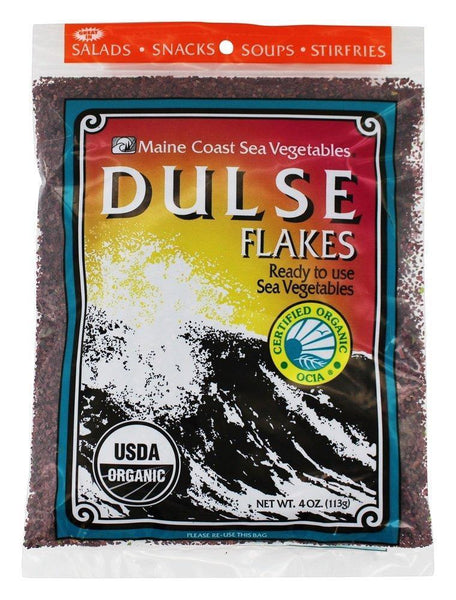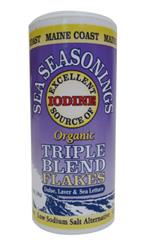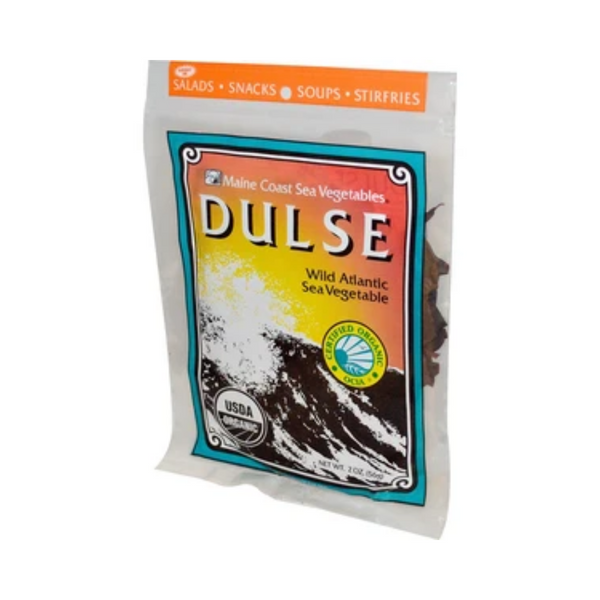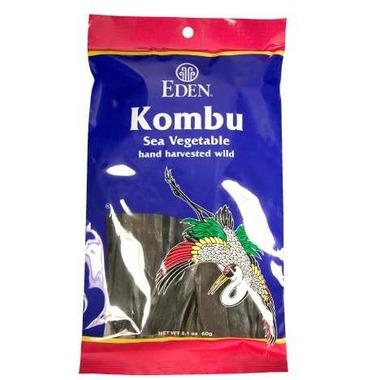Maine Coast Sea Vegetables Organic Kelp 56G
Maine Coast Sea Vegetables Organic Kelp 56G
Maine harvested Kelp
In the British Isles Kelp is often called "Oarweed" or "Seatangle" as it is apt to get tangled up in the oars of fishing dories. It consists of a 4-8 ft. broad, golden-brown frond attached to a 3 to 6 foot hollow stipe (seaweed's version of a stem). Kelp grows in dense, shallow beds in the quiet waters of secluded bays. Here in Maine it is harvested during the low tides of the full and new moons between April and August. Like the other native seaweeds Alaria,, each frond is hung individually to dry in the sun.
Versatile for cooking
Our Kelp is a thinner, more tender variety of Japanese Kombu and can be used exactly the same way — in soup stocks, pan-fried for chips or stir-fried. It's great roasted, fried, pickled, boiled, sautéed and marinated. Kelp is a must for all soup stocks, enriching flavor and nutrition. You should never cook beans without it, as it tenderizes, shortens cooking times and increases digestibility.
Kelp is rich in nutrients
Kelp is a rich source for minerals and trace elements, including calcium, potassium and magnesium and it offers substantial amounts of some of the B vitamins. Scientists have found that alginic acid, an important intercellular polysaccharide found in large brown algae like Kelp, can significantly reduce the amount of radioactive strontium-90 and heavy metals such as cadmium absorbed through the intestinal wall.
Kelp contains Mannitol, a natural sugar molecule that gives it a slight sweetness and glutamic acid, the amino acid that tenderizes beans and makes them more digestible.
The glutamic acid in Kelp also creates the "fifth taste" called umami.; Umami is a Japanese word derived from umai — "delicious" and mi - "essence." It was discovered by Dr. Kikunae Ikeda in 1908 after extracting the glutamic acid from a bowl of dashi broth that contained Kelp. In English, it is most often referred to as savory. Kelp is one of the best vegetable sources of umami!


